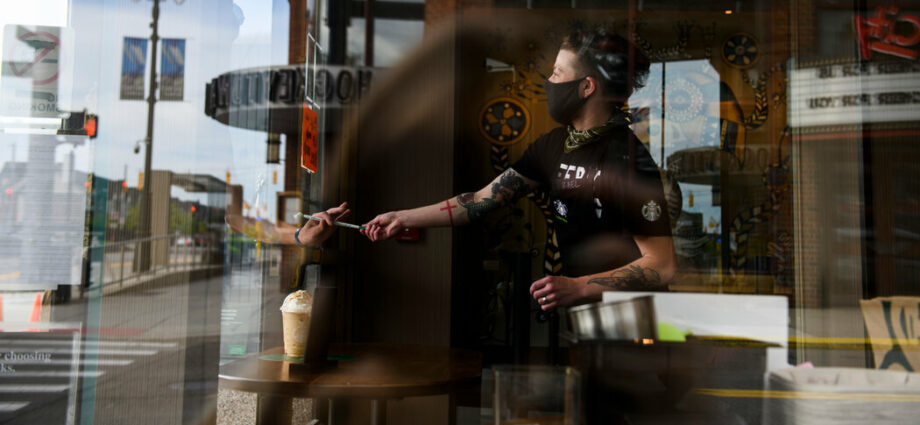It was the most sweeping intervention by a court in the 18-month campaign to unionize Starbucks: Last week, a federal judge in Michigan issued an order blocking Starbucks from firing any U.S. worker because they engaged in collective action, like seeking to form a union.
Union supporters cheered. Starbucks seemed taken aback, calling the order “extraordinary” and “unwarranted” and denying that the company had broken the law.
But a few days later, the judge, Mark A. Goldsmith, announced that he had made certain unspecified “errors” and withdrew his earlier injunction. On Thursday, Judge Goldsmith issued a new injunction — only this time it was limited to a store in Michigan where a worker said she had been fired for her involvement in union organizing. The injunction’s national scope had vanished.
In a revised opinion accompanying Thursday’s order, Judge Goldsmith said that the key criterion for determining whether to impose a nationwide injunction was whether the company had pursued a general policy of violating labor law. He said that while the National Labor Relations Board had filed about 24 complaints involving roughly 50 workers fired by Starbucks across the country, many of those cases were in their early stages.
As a result, Judge Goldsmith concluded, the evidence supported an injunction only at a store in Ann Arbor, Mich., where a labor board judge found in October that a worker had illegally been fired.
Legal experts said that the original injunction would have allowed the labor board to seek expedited reinstatement of workers who had been fired at any of the roughly 9,000 corporate-owned Starbucks stores in the country, and that it could have led to fines if the court found that Starbucks was continuing to fire workers for union organizing. Now those measures will apply only to a single store.
The general counsel of the labor board, who oversees the office that had gone to federal court seeking the worker’s reinstatement, called the reversal disappointing but said in a statement that “the judge’s revised order still provides critical protection for the workers at Starbucks’ Ann Arbor store.” The statement said the agency would continue to seek nationwide remedies for labor law violations “as appropriate.”
The union, Workers United, said it would “continue to fight for a national remedy to address Starbucks’ unprecedented union-busting campaign and hold the company accountable for their actions.”
A Starbucks spokesman said, “We are pleased that the court rejected the National Labor Relations Board’s overreaching and inappropriate request for a nationwide cease-and-desist order as we pursue a full legal review of the merits of the case.”
As to why the court initially issued the national injunction before abandoning it, Judge Goldsmith’s opinion did not elaborate.
Legal experts said they couldn’t recall seeing a judge make a similar about-face. “I don’t think I can think of anything like this,” Wilma Liebman, a former chairwoman of the National Labor Relations Board, said in an email.
Ms. Liebman said the most plausible explanation she could imagine was that the board had provided the judge with the order it was seeking, and that the judge had incorporated the order without sufficient modification — “careless but not intentionally mistaken,” Ms. Liebman said.
A clerk reached at the court said the judge could not comment.
Source: Read Full Article
-
Every Time a Foreign Country Surrendered to the United States
-
How a Solo Gig Can Give You a Stronger Retirement
-
Genfit Gears Up For Primary Biliary Cholangitis Trial Data
-
Blinken Seeks Release Of US Citizens In Call To Russia's Lavrov
-
With Its Future at Stake, the Academy Tries to Fix the Oscars (Again)

